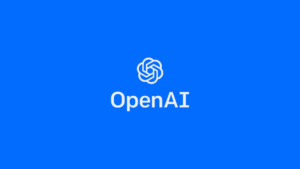AI Agents and the Future of Education: A Transformational Era Begins
 As we enter a new year, it’s worth reflecting on how far humanity has come. The progress achieved in 2024 stands as a testament to human ingenuity, particularly in harnessing the transformative potential of artificial intelligence (AI). The global AI market, valued at $142.3 billion in 2023, is projected to grow at an impressive compound annual growth rate (CAGR) of 36.2%, reaching $1,811.8 billion by 2030. In education alone, AI adoption is growing at a remarkable 47.5% annually, reshaping the way we teach and learn.
As we enter a new year, it’s worth reflecting on how far humanity has come. The progress achieved in 2024 stands as a testament to human ingenuity, particularly in harnessing the transformative potential of artificial intelligence (AI). The global AI market, valued at $142.3 billion in 2023, is projected to grow at an impressive compound annual growth rate (CAGR) of 36.2%, reaching $1,811.8 billion by 2030. In education alone, AI adoption is growing at a remarkable 47.5% annually, reshaping the way we teach and learn.
AI’s ability to adapt and overcome challenges mirrors human evolution. Its iterative learning process is exemplified in tools like ChatGPT, which reached one million users within just five days of its launch—a reflection of its profound relevance in today’s digital world.
Looking ahead to 2025, the rise of AI agents is set to revolutionise industries, with education at the forefront. These agents, much like the fictional Jarvis from Iron Man, operate according to user-defined guidelines and can collaborate with or work independently for their creators. Their integration into education is poised to redefine learning, making it more personalised, efficient, and inclusive.
By late 2024, AI agents had already begun reshaping education, and their impact is set to grow exponentially. These tools can streamline time-intensive tasks such as course planning, assessments, and certification creation, freeing educators to focus on mentoring and inspiring students.
At institutions like IILM, AI agents are already assisting students by analysing their interests, past performance, and career aspirations to recommend personalised courses. This tailored approach ensures students maximise their potential and align their studies with their goals. Additionally, technologies like ChatGPT’s vision capabilities could revolutionise classroom management, enabling accurate, real-time attendance tracking.
AI’s role in personalised learning, administrative automation, and real-time feedback is already evident. The next step is deeper integration of AI agents into educational systems to enhance precision, speed, and adaptability. By 2025, education will transition from traditional models to agile, future-ready ecosystems, moving away from one-size-fits-all approaches to a dynamic and collaborative framework tailored to individual needs.
This revolution extends beyond education. AI agents, now easier to create without advanced coding skills, are empowering educators and institutions to innovate. Teachers can utilise these tools to summarise lessons and address students’ questions, creating a more interactive and efficient learning experience.
The year 2025 will see education embrace AI-driven tools that enhance both teaching and learning. From personalised course recommendations to automated administrative support and real-time problem-solving, the possibilities are boundless. This democratisation of AI will empower educators and learners alike, fostering a smarter, more connected, and inclusive educational future.
As we step into this transformative era, 2025 promises to be a year of unparalleled innovation in education, paving the way for a brighter and more collaborative world of learning.





